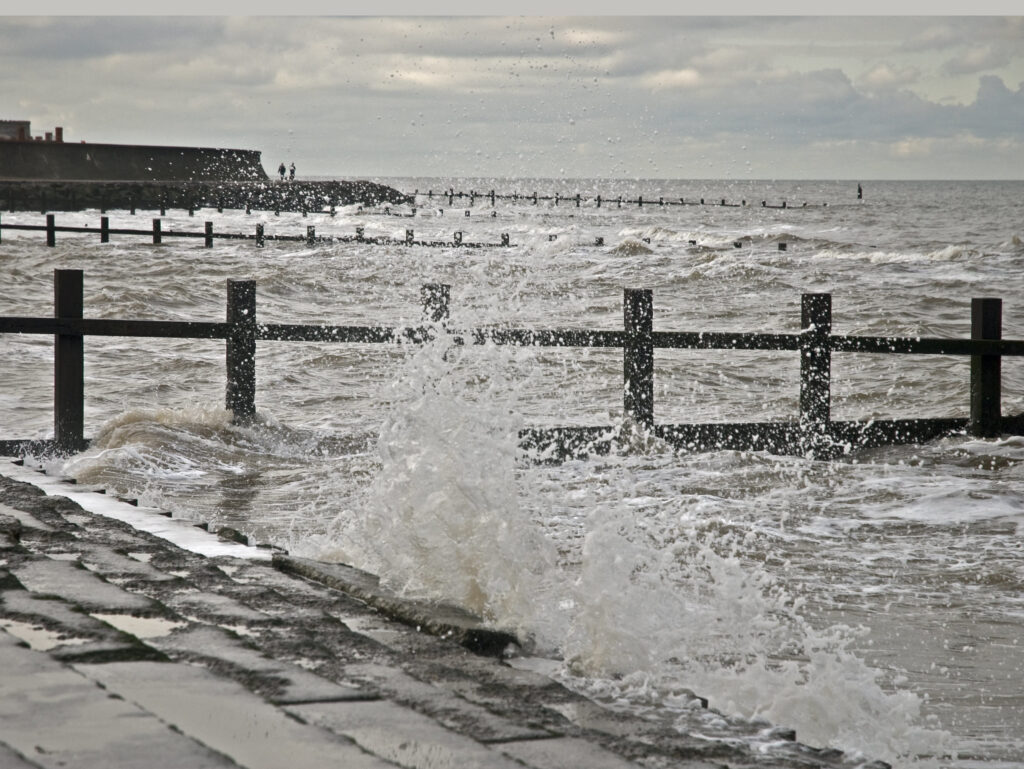Meic Stephens looks at the life of a space physicist who became a principal strategist for Plaid Cymru
Phil Williams, who died in June 2003, combined a distinguished career as a space physicist with a whole-hearted commitment to the cause of Plaid Cymru, which he served for more than 40 years as strategist and latterly as a member of the National Assembly.
He put his formidable intellectual gifts into thinking not only about what the party should adopt as its economic policies but also, as the momentum for self-government gathered pace, into what kind of democratically elected body was needed by the people of Wales. Dr Phil, as he was widely known, often joked that his eyes might be on outer space but his feet were firmly planted on Welsh ground, and he threw himself into the hurly-burly of political life with great verve and relish.
His academic career began at Lewis School, Pengam, in Glamorgan, from where he went up to Clare College, Cambridge, winning the Greene Cup and the Mugorki Prize for Physics in 1964, the year he took his doctorate in Physics. A brilliant student, he stayed on at Cambridge for another seven years, first as a research worker at the Cavendish Laboratory and then as a Fellow of his old college.
He had already discovered an interest in left-wing politics and had joined the Labour Party in 1955, at the age of 16, an occasion made all the more memorable by Aneurin Bevan’s signing his copy of Marx’s Capital. From a working-class background, he had a fund of anecdotes about the mutual incomprehension that dogged relations between Cambridge left-wingers from more privileged backgrounds and those who, like himself, were rooted in socialism as lived by the people of the South Wales valleys.
He had been born in Tredegar in Monmouthshire, and brought up in nearby Bargoed, a town with an enormous slag-tip almost in its main street, and had seen the consequences of economic decline and social deprivation at first hand. While still in Cambridge he was the joint author of Socialism for Tomorrow, a manifesto published by Socialist Commentary which stressed the importance of decentralising power from London to the regions and nations of Britain.
It was the Labour Party’s failure to get to grips with the blight that was settling on Wales during the 1950s and the brutish behaviour of certain leading lights of that party which eventually drove Phil Williams out of Labour’s ranks and into Plaid Cymru’s in 1961. In this he came under the influence of nationalist leaders such as Gwynfor Evans and Emrys Roberts and of the poet Harri Webb, in whose convivial company he was often to be found. For a while he belonged to the New Nation group within Plaid Cymru, which was calling for more realistic economic policies for the industrial parts of Wales.
An English-speaker in those days, he attracted like-minded young people in the valleys of the south-east for whom he was something of a local hero. His own odyssey from Labour to Plaid Cymru – he described himself as a Welsh internationalist – is described in his book Voice from the Valleys (1981), a refreshingly rigorous account of radical politics in Wales and a disarmingly honest statement of his own views.
By the late 1960s he was back in Wales, teaching in the Physics Department at the University College, Aberystwyth, where he set about learning Welsh, a language he spoke with some fluency and in which his two children were reared; he was appointed Professor of Solar Terrestrial Physics in 1991. He played an active role in the affairs of the college and the university, serving on the Court and as Chairman of the University Forum.
He was also involved in many scientific projects on a wider stage, notably the European Incoherent Scatter Facility (Eiscat), of which he became Scientific Director and later Chairman, and in the work of the Royal Astronomical Society. His main contribution as a physicist was in pioneering the study of solar wind using interplanetary scintillations. He published more than a hundred papers on radio astronomy, space and atmospheric physics and was due to return in August to Arctic Scandinavia, where he was taking part in a major astronomical project.
His career as a scientist went hand in hand with his political commitments. He stood in Plaid Cymru’s name at six elections for the Westminster parliament, all in the Caerphilly constituency. At one of these his supporters devised the election slogan “Who put the Phil in Caerphilly – hush, you know who”.
But it was not to be. It was at the by-election of July 1968 that he came closest, with only some 1,800 votes fewer than the Labour candidate. His share of the votes cast, some 40 per cent, represented a swing of 29 per cent, at the time the second largest ever recorded in UK elections. It was this close shave for Labour, together with another in Rhondda in the previous year, and Gwynfor Evans’s victory in Carmarthen in July 1966, that concentrated the Government’s mind on the case for a more effective measure of administrative devolution than Wales had hitherto been given. Phil Williams also stood in Mid and West Wales in the European Elections of 1984 and 1989.
As Vice-President of Plaid Cymru he chaired the Strategy Committee whose main achievement was the decision to recognise the European Community, despite its shortcomings, as the only realistic context for the UK’s economic policies. As National Chair he concentrated his energies on promoting the party in the English-speaking areas of South Wales such as Aberdare, Merthyr and Caerphilly, which were his natural base and where the nationalist vote increased significantly. As spokesman on the environment he developed an energy plan for Wales and played a key role in encouraging discussions between Plaid Cymru and the Green Party, which led to the election of Plaid’s Cynog Dafis as MP for Ceredigion.
His major contribution to the development of Plaid Cymru’s economic policies was made in An Economic Plan for Wales (1970), which he co-wrote with Dafydd Wigley, the substance of which was duly adopted by the party, and The Welsh Budget (1998), in which he demonstrated that Wales, far from being subsidised by England, was more than paying its way in the economy of the United Kingdom. These publications, widely circulated and discussed, were typical of Williams’s thinking: well-informed, strictly analytical and rich in the ideas sparked by the main tenets of his thesis – that Wales could become a prosperous, progressive society if freed from the shackles of London control.
He had the satisfaction of being elected as a list candidate for the South Wales East region at the first election held for the Welsh Assembly in 1999 and was voted AM of the Year for his work on the Objective One European funding programme. Among the matters on which he put his keen intellect to work was the Barnett formula by which Wales is funded by the British Exchequer, inadequately and unfairly in his view. His decision to retire from the Assembly before its second term was greeted with dismay by all sections of the party, since he was one of the few figures of national stature to sit in Cardiff Bay.





Comments are closed.